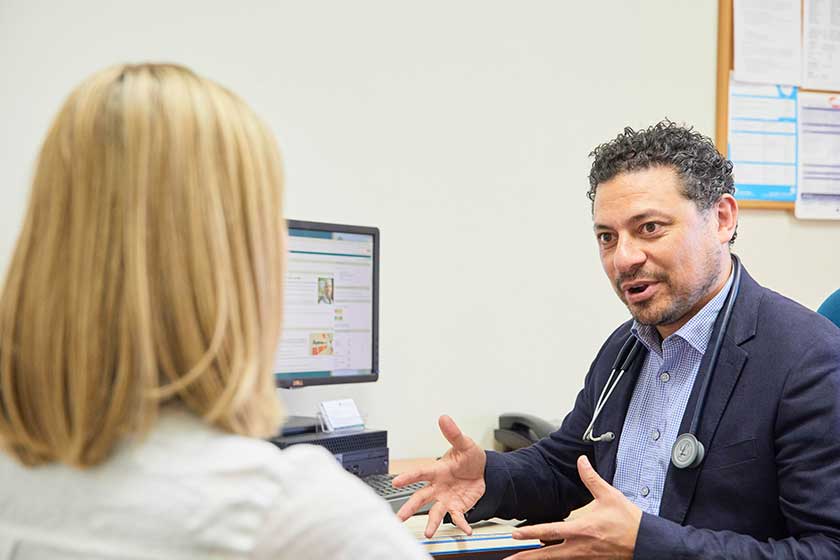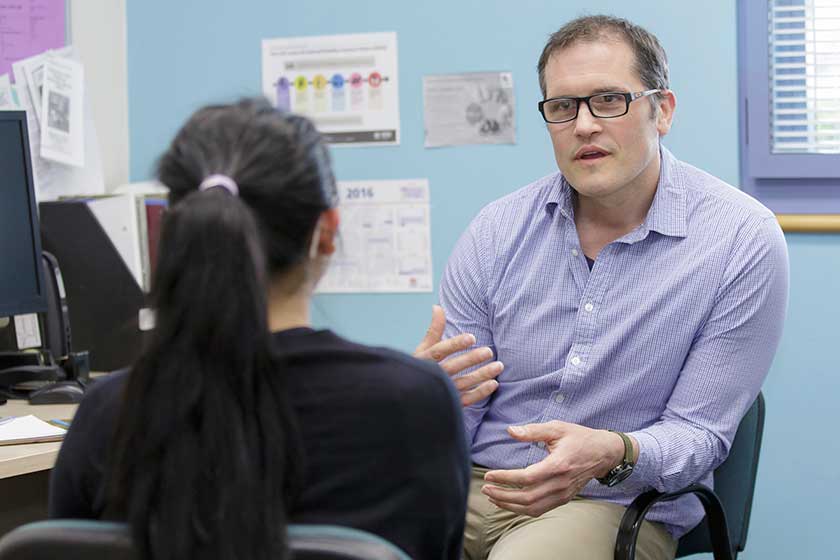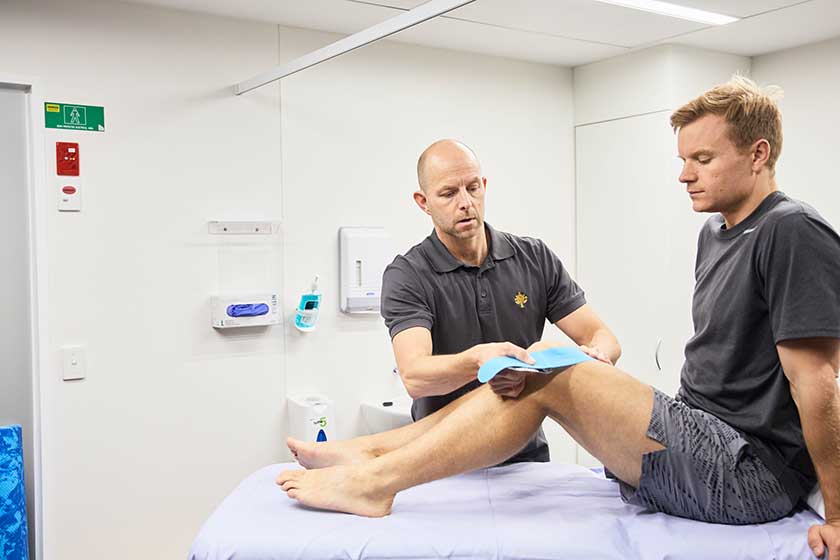Bring and share all of your relevant health information
Your first appointment is not only a chance for you to meet the orthopaedic surgeon but also a chance for you to explain your health concerns.
In order to give your specialist a complete picture of your condition and overall health and wellbeing, bring any scans (Xrays and MRIs), and notes from other health professionals with you.
Explain the nature of your condition and your concerns.
This information allows your specialist to accurately assess your condition and plan your treatment options.
Discuss your situation
While orthopaedic surgeons are highly skilled at treating a range of conditions, they don’t know your lifestyle or how your condition has affected your wellbeing.
Your first appointment is an important time to tell your specialist what you hope to achieve as a result of surgery – that could be playing tennis again, walking without pain in time for a holiday or simply playing with grandchildren without pain.
This information can help your surgeon tailor their treatment plan to meet your needs.
Bring your questions and a friend
When you are speaking about your health to a specialist, it can be easy to forget important information or questions that you want answered.
To ensure you get all the information you want out of the appointment, bring your questions written down to the appointment and feel free to ask your questions at any point in the appointment.
It can also be helpful to bring a trusted friend or family member to your appointment. It can be hard to remember all the information provided, particularly if you are feeling scared or overwhelmed, so having another person in the room who can help you recall the information afterwards is helpful.
Speak about costs
We know that the costs involved in choosing to get orthopaedic surgery may not be initially clear.
Don’t be afraid to speak openly with your specialist about their fees and charges and if they are a preferred provider with your private health insurer. Knowing the likely costs involved in surgery, including if there is a no-gap service, will help you feel more prepared and you can start to budget for any out-of-pocket fees.
Find out a little more about your surgeon
Your health is your most important assets so you should trust and feel confident in your orthopaedic surgeon.
Use your first appointment to find out a little more about your surgeon.
- Ask about their specialist and subspecialty training and if they are experienced with treating your condition.
- Ask about their success rates with treating your condition.
- Ask about their experience, both generally and specific to your condition.
- Ask if they take part in research or use the latest technology in theatre.
If you haven't been referred to a specific surgeon yet, you can search for a relevant specialist using our Find a Specialist search.
Ask about your options
After finding out about your condition and your expectations, your orthopaedic surgeon may recommend a course of action or treatment.
While they may only recommend one option, there are often multiple choices available including not doing anything.
Make sure you ask for all of your options and the risks and benefits associated with each so you can make an informed decision about your care.
If you have private health insurance, you can also unlock the benefits of your insurance by getting quick access to care at a private hospital.
Get a second opinion
As a private patient, you get to choose your specialist. This means, if you don’t feel confident after your first appointment, you don’t have to continue being cared for by that specialist.
You can seek a second (or further) opinion about your treatment so you can find a specialist who suits your needs and who you feel comfortable and confident with your health.











